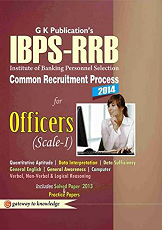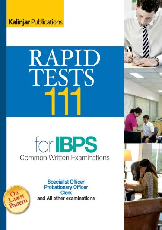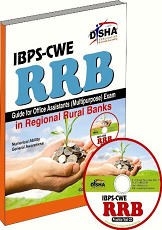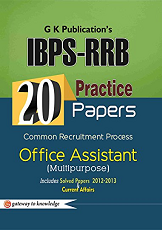The IBPS Guide: For a Career You Can Bank On!

About
Find out about the exam, selection criteria and more.
Calendar
Never miss important dates for forms and more.
Top Books
Crack the IBPS thanks to these helpful books.
Practice Links
Practice and judge your knowledge with these links.
Toppers
Get ideas from people who cracked the IBPS exam.

Coaching Centres
Find out about coaching centres for addedhelp.
Tips & Tricks
Improve your score with simple hacks.
FAQ'S
Get answers to all your doubts.
About
- What is the IBPS Bank Exam?
The Institute of Banking Personnel Selection (IBPS) helps find the right candidates for Public Sector Banks and other Financial Institutions by conducting a Common Written Exam for the posts of Probationary Officer, Specialist Offer and Management Trainee.
IBPS works in tandem with 22 Government Banks and thousands of aspirants are placed through the IBPS Exam.
The IBPS has authorization to help find skilled and qualified talent for banks across India by streamlining the selection process with this exam. Four types of exams are conducted by the IBPS which are:
IBPS PO Exam
IBPS SO Exam
IBPS Regional Rural Banks Exam
IBPS Clerk Exam
- IBPS Clerk Cadre Eligibility
Age
20-28 years.
The age relaxation is as follows:
(i) OBC: 3 years
(ii)SC/ST: 5 years
(iii) PWD: 10 years
Educational Qualification
Graduation in any stream from a recognized university.
- IBPS Probationary Officer Eligibility
Age
20-30 years.
This is the age relaxation:
(i) OBC: 3 years
(ii)SC/ST: 5 years
(iii) PWD: 10 years
Educational Qualification
Graduation in any stream from a recognized university.
- IBPS Regional Rural Bank Eligibility
Office Assistant
Age
18-28 years.
Educational Qualification
Graduation in any stream from a government recognized university.
Candidate should have good proficiency in his/her local language.
Officer Scale I
Age
18-30 years
Educational Qualification
Graduation degree in any stream from a recognized university with minimum 50% aggregate marks.
Good command over local language.
Officer Scale II- General Banking Officer
Age
21-32 years.
Educational Qualification
Degree from a recognized university with minimum 50% aggregate marks.
Min. two years experience in a bank/financial institute.
Officer Scale II- Specialist Officer
Age
21-32 years.
Educational Qualification
For various posts, the educational qualification is as follows:
Information Technology Officer
Degree from a recognized university in Electronics, Communication/ Computer Science/ Information Technology
Desirably holding a Certificate in ASP, Java, C++, OCP, VB,PHP etc.
Experience: 1 year
Law Officer
Degree in Law from a recognized university.
Minimum aggregate marks should be 50%.
Experience: 2 years as an advocate or having worked as a Law Officer in Banks/Financial Institutions for at least 2 years.
Chartered Accountant
Must be a Certified Associate (CA) having successfully completed the course from Institute of Chartered Accountants of India.
Experience: 1 year
Marketing Officer
MBA in Marketing from any recognized university.
Experience: 1 year
Treasury Manager
Certified Associate (CA) passed out from Institute of Chartered Accountants of India.
Experience: 1 year
Agricultural Officer
Degree from any recognized university in Agriculture/ Horticulture/ Animal Husbandry/ Dairy/ Agricultural Engineering/ Pisciculture/ Veterinary Science.
Experience: 2 years
Officer Scale III
Age
21-40 years
Educational Qualification
Graduation degree in any stream from a recognized university with 50% minimum marks as aggregate.
Experience: 5 years in a Bank of Financial Institution on the post of Officer.
- IBPS Specialist Officer Eligibility
Age
20-30 years.
This is the age relaxation:
(i) OBC: 3 years
(ii)SC/ST: 5 years
(iii) PWD: 10 years
Educational Qualification
IBPS SO exam can be given for a variety of posts. Depending on the post, the qualification is as follows:
I.T. Officer (Scale I)
Four year Engineering Degree or Post Graduage Degree in Computer Application/ Computer Science/ Information Technology/ Electronics and Telecommunication/ Electronics/ Electronics and Instrumentation
OR
A certified computer cource from DOEACC with "B" level PASS.
Law Officer (Scale I)
Bachelor holding a Degree in LLB
AND
An advocate enrolled with the Bar Council.
Agricultural Officer (Scale I)
Graduation (four years) in Agriculture/ Animal Husbandry/ Pisciculture/ Horticulture/ Dairy Science/ Veterinary Science/ Agro Forestry/ Agri Marketing/ Agri Engineering/ Fishery Science.
Rajsabha Adhikari (Scale I)
Post Graduation in Hindi or Sanskrit with English as a subject at Graduation or Degree level.
HR or Personnel Officer (Scale I)
Post Graduate Degree or Post Graduate Diploma in Industrial Relations/Labour Law/Social Work/Personnel Management/HRD/HR.
Marketing Officer (Scale I)
Graduate
AND
Full Time MBA in Marketing or a Post Graduate Diploma in Management with Marketing as a specialization.
- IBPS Clerk Exam Pattern
Preliminary Exam
English: 30 questions, 30 marks
Numerical Ability: 35 questions, 35 marks
Reasoning: 35 questions, 35 marks
Total Time: 1 hours
Total Marks: 100
Mains Exam
English: 40 questions, 40 marks
Numerical Ability: 40 questions, 40 marks
Reasoning: 40 questions, 40 marks
General Knowledge: 40 questions, 40 marks
Computer Knowledge: 40 questions, 40 marks
Total Time: 2 hours
Total Marks: 200
The qualifying candidates are then called for an Interview round for final selection.
- IBPS PO Exam Pattern
Preliminary Exam
English: 30 questions, 30 marks
Numerical Ability: 35 questions, 35 marks
Reasoning: 35 questions, 35 marks
Total Time: 1 hours
Total Marks: 100
Mains Exam
English: 40 questions, 40 marks
Quantitative Aptitude: 50 questions, 50 marks
Reasoning: 50 questions, 50 marks
General Knowledge: 40 questions, 40 marks
Computer Knowledge: 20 questions, 20 marks
Total Time: 2 hours
Total Marks: 200
The qualifying candidates have to sit through an interview process for final selection.
- IBPS RRBs Exam Pattern
Office Assistant
English (a): 40 questions, 40 marks
Hindi (b): 40 questions, 40 marks
Quantitative Aptitude: 40 questions, 50 marks
Reasoning: 40 questions, 50 marks
General Knowledge: 40 questions, 40 marks
Computer Knowledge: 40 questions, 20 marks
Total Time: 2 hours
Total Marks: 200
Officer Scale I
English (a): 40 questions, 40 marks
Hindi (b): 40 questions, 40 marks
Quantitative Aptitude: 40 questions, 50 marks
Reasoning: 40 questions, 50 marks
General Knowledge: 40 questions, 40 marks
Computer Knowledge: 40 questions, 20 marks
Total Time: 2 hours
Total Marks: 200
Officer Scale II- General Banking Officer
English (a): 40 questions, 40 marks
Hindi (b): 40 questions, 40 marks
Quantitative Aptitude & Data Interpretation: 40 questions, 50 marks
Reasoning: 40 questions, 50 marks
Financial Awareness: 40 questions, 40 marks
Computer Knowledge: 40 questions, 20 marks
Total Time: 2 hours
Total Marks: 200
Officer Scale II- Specialist Officer
English (a): 40 questions, 20 marks
Hindi (b): 40 questions, 20 marks
Quantitative Aptitude & Data Interpretation: 40 questions, 40 marks
Reasoning: 40 questions, 40 marks
Financial Awareness: 40 questions, 40 marks
Computer Knowledge: 40 questions, 20 marks
Professional Knowledge: 40 questions, 40 marks
Total Time: 2 hours
Total Marks: 240
Officer Scale III
English (a): 40 questions, 40 marks
Hindi (b): 40 questions, 40 marks
Quantitative Aptitude & Data Interpretation: 40 questions, 50 marks
Reasoning: 40 questions, 50 marks
Financial Awareness: 40 questions, 40 marks
Computer Knowledge: 40 questions, 20 marks
Total Time: 2 hours
Total Marks: 200
Candidates can select between the medium English or Hindi.
The qualifying candidates are then called for an Interview round for final selection.
- IBPS SO Exam Pattern
Law Officer and Rajsabha Adhikari
English (a): 50 questions, 25 marks
Reasoning: 50 questions, 50 marks
General Awareness: 50 questions, 50 marks
Professional Knowledge: 50 questions, 75 marks
Total Time: 2 hours
Total Marks: 200
IT Officer,HR/Personnel Officer/Agricultural Field Officer and Marketing Officer
English (a): 50 questions, 25 marks
Quantitative Aptitude & Data Interpretation: 50 questions, 50 marks
Reasoning: 50 questions, 50 marks
Professional Knowledge: 50 questions, 75 marks
Total Time: 2 hours
Total Marks: 200
The qualifying candidates have to sit through an interview process for final selection.
- Is there negative marking?
Yes. Every wrong answer carries a penalty of 0.25 marks.
Calendar
- Important dates for IBPS Clerk Exam
Start of Registration: August, 2016
Last Date of Registration: September, 2016
Online Payment of Form: August, 2016
Download of Admit Card: November, 2016
Date of Prelim Exam:
26th November, 2016
27th November, 2016
3rd December, 2016
4th December, 2016
Result Declaration for Prelims: December, 2016
Download Mains Call Letter: December, 2016
Mains Exam Date:
31st January, 2016
1st January, 2017
Result Declaration for Mains: January, 2017
Download of Call Letter-Interview: January, 2017
Interview Slot: February, 2017
Allotment of IBPS Clerk (Provisional): April, 2017
- Important Dates for IBPS PO Exam
Start of Registration: July, 2016
Last Date of Registration: July, 2016
Online Payment of Form: July, 2016
Download of Admit Card: September, 2016
Date of Prelim Exam:
16th October, 2016
22nd October, 2016
23rd October, 2016
Result Declaration for Prelims: October, 2016 (online exam)
Download Mains Call Letter: November, 2016
Mains Exam Date:
20th November, 2016
Result Declaration for Mains: December, 2016
Download of Call Letter-Interview: January, 2017
Interview Slot: March, 2017
Allotment of IBPS Clerk (Provisional): April, 2017
- Important Dates for IBPS RRB Exam
The dates for RRB V Exam are as follows:
Start of Registration: July, 2016
Last Date of Registration: July, 2016
Online Payment of Form: July, 2016
Pre Exam Training Call Letter Download: August, 2016 (Officer Scale 1/Office Assistant)
Pre Exam Training:August, 2016 (Officer- Scale 1)
Pre Exam Training:September, 2016 (Office Assistant)
Download of Admit Card:September, 2016 (online exam)
Officers Exam Date September, 2016
Office Assistant Exam Date:September, 2016
Expected Result Declaration: November, 2016
- Important Dates for IBPS SO VI Exam
Start of Registration: 23rd November, 2016
Last Date of Registration:10th December, 2016
Online Payment of Form from: 23rd November, 2016
Offline Payment of Form from:10th December, 2016
Download of Admit Card from:19th January, 2017
Date of SO VI Exam:
28th January, 2017
29th January, 2017
Result Declaration: February, 2017
Download Interview Admit Card:March, 2017
SO Interview Date:March, 2017
Allotment of IBPS SO (Provisional): April, 2017
Practice Links
Free Links
- IBPS Exam Guru
Get to know your performance before the big exam thanks. Practice here.
- IBPS Preparation
Practice various segments of the IBPS exam and ace it by taking mock tests here.
- IBPS Official
What better way to practice than on the official site itself. Take a practice test here.
- Test Book
Be it IBPS PO or IBPS Clerk, give yourself good practice. Click here to take a mock test.
Subscription Based Links
- Mock Bank
Purchase a package from Mock Bank to give yourself a good understanding of the IBPS Exam. Click here.
- Olive Board
Get ready for the IBPS Exam by thoroughly going through mock exam papers. Click here.
- Career Launcher
Take the Career Launchers Bank Test Series to familiarise yourself with the exam pattern and level of difficulty. Click here.
- Career Power
Enroll with Career Power and understand the exam pattern of the IBPS exam by taking plenty mock tests. Click here.
Toppers
- Get tips from toppers who cracked various IBPS Exams.
Coaching Centres
All India
- T.I.M.E
T.I.M.E. has been in the education sector for over 22 years giving them rich experience and good understanding of how banking exams are conducted making them one of the most popular centres amongst aspirants.
- Career Launcher
Career Launcher offers classroom and correspondence programs to those interested in starting a banking career and wishing to crack one of the IBPS exams. Become thorough with the question pattern thanks to their test series.
- Bank Exam Portal
For those unable to join a coaching center, Bank Exam Portal brings a solution to their problem by bringing online coaching solutions helping aspiring candidates get familiar with various IBPS exams be it the PO exam or SO exam.
- Route2Jobs
Another brilliant endeavour of speading education in the digital world is Route2Jobs which helps you prepare for various entrance exams including the bank P.O. exam helping you crack exams in the first attempt.
- Talent Sprint
Get ahead in the race thanks to Talent Sprint which conducts online PO coaching with renowned trainers to help you ace the big test.
City Wise
- Delhi
Plutus Academy
Vidya Guru
CAAS Institute
T.I.M.E.
Career and Competition
Achiever's Academy
- Mumbai
Ideal Classes
Seven S Academy
Mahendras Institute
Career Launcher
Focus Competition Zone
National School of Banking
- Gujarat
Mahindras Institute
T.I.M.E.
Navneet Institute
Shree Swaminarayan Competitive Classes
Liberty Career Academy
Navigator Solutions
IBT Institute
Pathfinder Education Services Pvt. Ltd.
- Bangalore
IMS Learning Resources
CAAS Institute
Erudite
Talent Sprint Educational Services
Career Launcher
Jaro Education Coaching
- Chennai
Race Institute
SAI Banking Academy of Competitive Exams
B Fit Banking Finance & Insurance Training
Advanced Learning Institute
Visu Academy
Vel Career Academy
Tips & Tricks
The IBPS exam can come off as intimidating but in order to master it you need a good execution plan. In order to know how you can ace various segments, read on:
- English Section

The English/Hindi section is surely one of the easier sections to score which is why you should use it to the best of your advantage to accumulate marks. This section works in the favour of those who have a command over the English Language and have their basics clear. For those who wish to score well in this segment, this is what you should pay attention to:
Grammar Preparation Tip:
The key to polishing grammar is regular practice. Take mock tests and focus on synonyms, rearranging sentences, sentence correction etc. as the major questions revolve around these topics.
Comprehension Preparation Tip:
The key to scoring in the comprehension section is to read passages slowly and grasping the message behind it. Read it two times at least and then skim read it which will make it easier to find answers in the passage. Mark what feels important and correctly read the questions to understand what is asked. Keep practicing mock papers.
Vocabulary Preparation Tip:
In order to improve vocabulary, start developing a regular reading habit be it novels, newspapers, magazines or articles on the internet. This will not only help build word power but also help you gain knowledge for the general knowledge section.
Spotting Errors Preparation Tip:
To be able to better spot errors in sentences, work on nouns, tenses and verb agreement to polish basic grammar. Also, strengthen your reading habits as this makes it easier to spot incorrect sentences.
Topics to Focus on:
Comprehension passage
Prepositions
Phrases and Idioms
One Word Substitution
Articles
Antonyms and Synonyms
Fill in the Blanks
Sentence Completion.
- Quantitative Aptitude Section

The key approach to quantitative aptitude is that you need to acquire accuracy with proper time management. Attempt this segment after the English section if Quant is your strong suit and if you are weak with math, attempt it in the end to not consume too much time with calculations.
Divide the Quant section into two segments:
Easy Scoring Segment
This segment requires less time as calculations are easy and the level of accuracy is high. Questions for this segment are generally framed from:
Simplification
Data Interpretation
Arithmetic problems involving questions on Simple and Compound Interest, Ration and Proportions, Percentage, Profit and Loss and averages.
These make up 15-17 questions in the exam paper.
Difficult and Time Consuming Segment
This segment has questions which require time to calculate and are harder to crack. The topics on which the questions are framed are:
Time Speed and Distance
Time and Work
Number Series
Probability
Quadratic Equations
These questions surely require more time devotion and should be kept for the end so as to not use up too much time.
For those who want just the cut off marks for this section, focus on the easier segment and attempt a few from the difficult segment so as to get a desired result.
- Reasoning Segment

The Reasoning Segment is yet another scoring segment if practiced well and can help boost your score if you have to make up for the quant segment. If you are good with Reasoning, attempt it after the English segment to save most time for Quant.
If not, then attempt this segment at the end to give yourself time to attempt this segment carefully as chances of making mistakes are high.
Easy Questions
In order to set a pace and finish more questions in less time, attempt this portion first. Around 10-12 questions comprise this segment and come from the following topics:
Odd Pair
Series and Analogy
Direction Sense
Number and Ranking
Time Sequence
Medium Level of Difficulty
This section has about 15-17 questions which require good practice to attempt in the first go without consuming too much time. The topics that comprise this segment are:
Coding and Decoding
Data Sufficiency
Blood Relations
Syllogisms
Inequalities
Try attempting questions from these two categories to get a sectional cut off in this segment.
Complex and Time Consuming Questions
This segment has about 10-15 questions and should be kept for last as it all boils down to how much time you have. If you are not sure on this category, it is better to not waste too much time on it. The topics that cover this segment are:
Floor Puzzle
Seating Arrangements
Input and Output Machine
Complex Puzzle
By aptly figuring out your strong and weak segments, you can better allocate time and prioritise solving the reasoning segment.
- General Awareness Segment
This segment appears in the Mains and holds quite some weightage and can be quite scoring too. However, you cannot prepare for this segment overnight and must put yourself in the habit to read the newspaper every day along with business and political magazines to be up to date with day to day current affairs.
The topics on which you should focus are:
Indian Economy
Current Affairs in the last year
Current happenings in the finance and banking sector
RBI Regulations
Monetary and Fiscal Policies
Budget
Banking Jargons
Sports
Recent Honours and Awards
A thorough read of the newspaper and a special finance paper every day should help you polish up the GK Segment.
- Computer Awareness Segment
With good practice, this too can become a scoring segment as your basic Computer knowledge and skill is tested and the questions are hardly time consuming.
The level of questions varies from easy to moderate and you can polish up your knowledge by getting text books to increase your base knowledge on this subject.
The questions are easily attemptable and only a small fraction of questions are tricky.
You can easily correctly attempt about 20 questions from this segment.
The topics of focus should be:
LAN and WAN Network Basics
Computer Peripherals
MS Word and MS Excel- Shortcut and Basics
Input and Output Device
Internet
- Tips to Reduce Negative Marking
While it is important to attempt a reasonable number of questions in the paper to get a good score, one must also know when to not take risks to avoid high negative marking. Read these tips to reduce your chances of getting negative marking in the exam:
Read the Question
Many a time in a hurry, test takers read questions quickly leading them to make silly mistakes which could have easily been avoided. Read the question and understand what it is trying to ask before hurriedly marking its answer.
Mock Test Practice
It is essential to take a good number of mock tests before the main exam as this will help strategise areas of strengths and weaknesses. This will allow you to know how much guess work you might be doing and strike an ideal balance.
Calculated Risk
While it is important to practice and be thorough with the syllabus, it is also impossible to know the answer to every aspect of the syllabus. When in doubt, make a calculated risk where you have a high chance of getting the option right. Where you are completely blank, let the question be rather than making guess works where it is not needed.
Attempt what you are Comfortable with
Attempt the section where you know you can score most securing a good percentage of marks. Then move on to the trickier segments which might take up some time and are difficult in order to accordingly calculate how many more guess works you can make in the rest of the paper. If you get a large portion of easier questions right, you could leave the trickier questions to completely avoid negative marking.
Time Management is Key
It is important to time yourself when taking mock tests to know how much time each segment consumes. If you do not have good time management, you will most likely rush through the questions in the end leading you to make mistakes and trying to guess answers. With the right time management, this can be avoided.
Making mistakes helps
Learn from your mistakes. There are some topics with which you must have struggled when preparing for the exam and you already know your chances of getting the right answer from such topics is low. Avoid these questions in the exam too if you have always found a certain topic difficult.
Learn from your Mistakes
The mock tests are a good way to know what mistakes you might be making when you try to go in for guesses. If your guess work is poor in the Quant Section, avoid guessing on the day of the exam too. Keep in mind the mistakes you make while practicing papers to better strategise your test taking approach on the final day.
FAQ's
- What are the number of vacancies?
There is no fixed number of seats or vacancies that are offered. It entirely depends on the participating bank and their recruitment proces every year.
- What is the mode of the exam?
The Common Written Exam (CWE) is conducted on an online platform.
- How will a candidate know if the registration was successful?
Upon successful registration, the page generates a registration number along with a password. Note this down and keep it carefully. This will come in useful while downloading the Call Letter.
- Can a final year graduate apply?
If you're still studying in your final year, you cannot apply as you need to be a graduage.
However, if your result is declared before the IBPS application date closes, you can apply for the exam.
- Is the exam bilingual?
All the segments in the exam except the English section are conducted both in Hindi and English.
- What are the top participating banks?
The top participating banks are:
Allahabad Bank
Indian Bank
Canara Bank
UCO Bank
Bank of Baroda
Corporation Bank
Andhra Bank
Bank of India
Punjab National Bank
Dena Bank
Bank of Maharashtra
Vijaya Bank
IDBI Bank
Any other bank or financial institution
- Is there any cut off score?
No, there is no cut off score. The selection process depends on the performance of the students every year which is calculated based on the Common Written Test and Interview.
- What are the payment options?
If you're applying online, you can make the payment via MasterCard and Visa or Internet Banking as well.
- Will there be any confirmation upon making payment?
Upon successful payment, a Transaction Reference Number is generated which is the acknowledgement of your payment.
- Is there any service fee?
For online and NEFT payments, a service fee will be imposed on the candidates.
- What should be done if the internet connection fails in the middle of a transaction?
If there is an internet issue, you can close the browser and try logging in again after a while. However if you have already submitted your payment form and are facing an issue, then send an email to registration_helpdesk@ibsporg.org.













